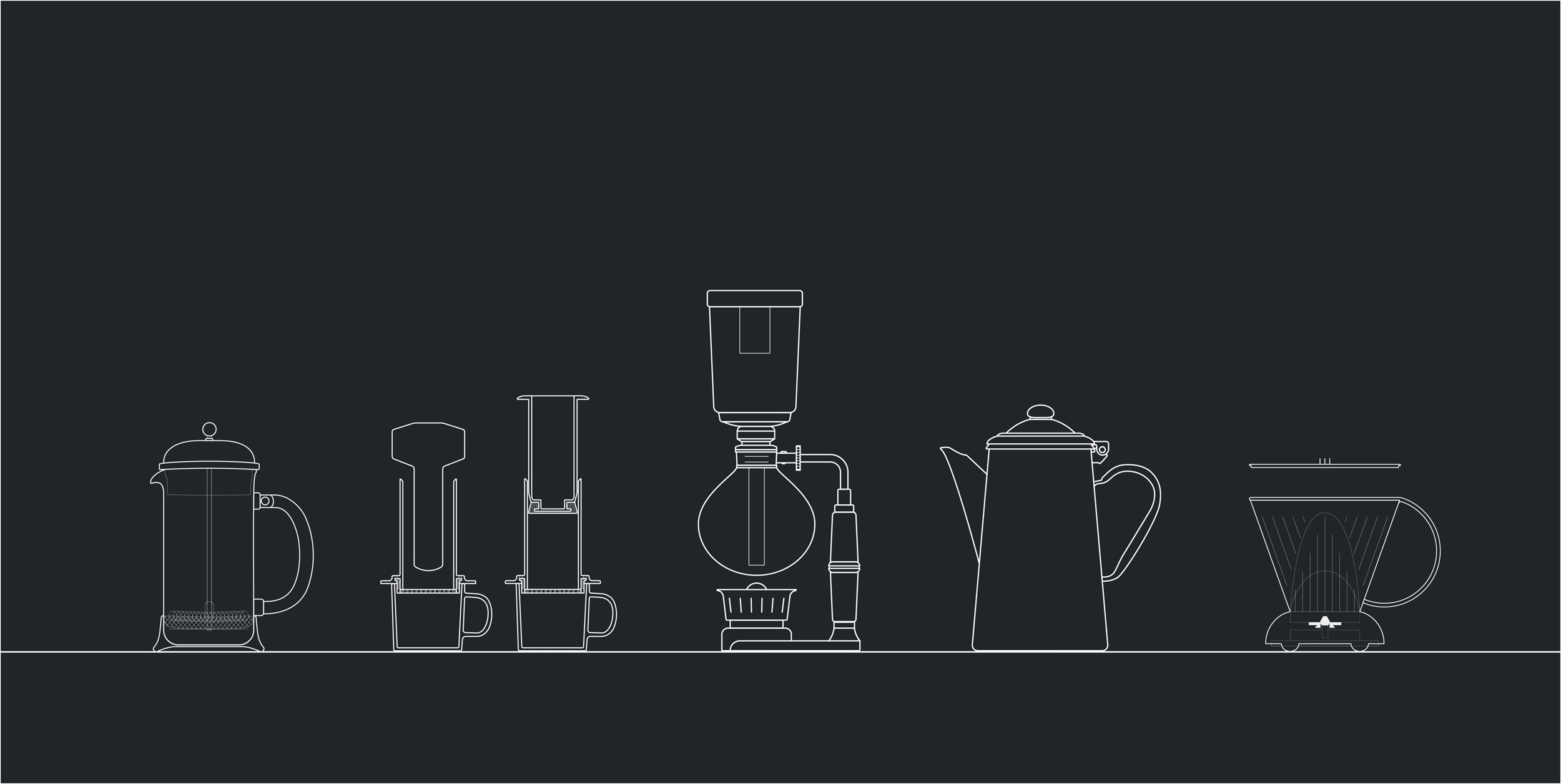In this course we shined a spotlight on various immersion brew methods, examining their history, their family tree, and the events leading up to their creation. This much is clear: The innovations and the sheer number of inventions in the immersion category of brewing vastly outweigh those of the other categories. Percolation brewers and espresso machines have very little separating them in terms of the underlying principles that make them operate. Best practice in these methods does not vary in any appreciable way from one brand of filter cone to the next or from one espresso machine maker to another. But, as the five separate scoresheets presented in Chapter 7 of this course illustrate, immersion is a highly diverse category of brewing.
Beginning with the early preparations of qishr during the fifteenth century in Yemen, followed soon after by the invention of cezve brewers in Turkey, immersion brewing methods helped the coffee beverage become a household staple around the globe. Jug coffee concoctions were served at a throng of coffeehouses in and around London in the early eighteenth century. In these ‘Penny Universities’, so-called because entry cost one penny, the coffee was served up in an atmosphere of lively social and political discourse.
Whilst the cupping method enjoys a position of prominence amongst professionals working in coffee quality control, we have observed a decline in popularity of many other immersion brew methods in specialty coffee shops. With the notable exception of the AeroPress, the difficulty in cleaning and the relative inefficiency of service offered by most immersion brew methods are the most likely reasons for this decline, during the ascendancy of the independent café culture promoted by the third wave. We hope this text helps to promote some of the less widely used brew methods.
The wider public of the Eastern Mediterranean and Middle East have known for generations (but the third wave has been reluctant to acknowledge) that the cezve can produce a brew that is just as rich and aromatic as an espresso,
